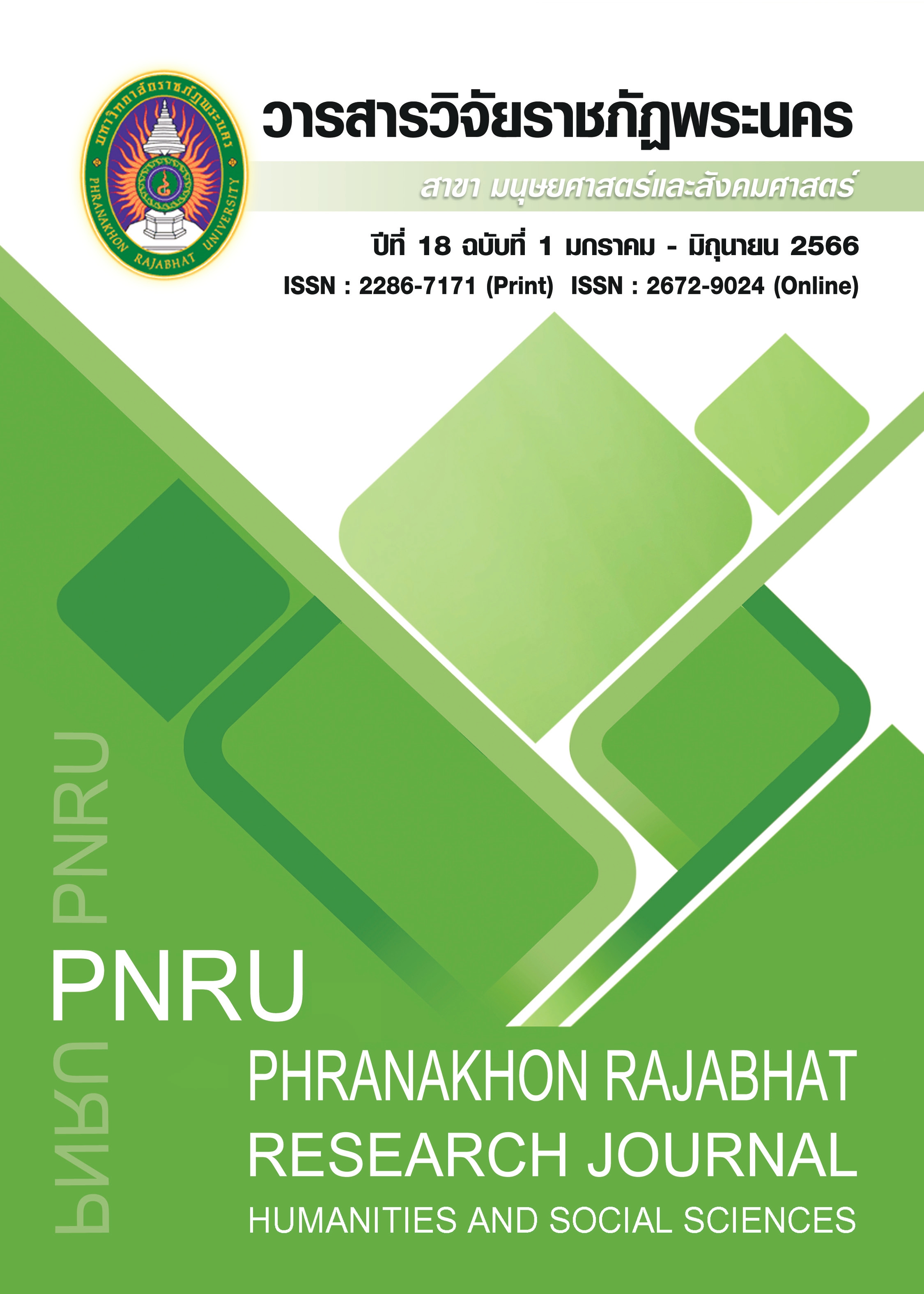COMPARING FORMER ASSUMPTION UNIVERSITY OF THAILAND STUDENTS’ ASPIRATIONS TO ENGLISH PRONUNCIATION MODELS WHILE AT UNIVERSITY LEVEL WITH THEIR EXPOSURE TO ENGLISH PRONUNCIATION MODELS AFTER GRADUATION
Main Article Content
Abstract
The overall objective of this study was to examine the relationship between former Assumption University of Thailand (AU) students’ aspirations to English pronunciation models at the university level and in general, their daily exposure to English pronunciation models in a post-university environment, at work, and for socializing purposes after graduation. More precisely, this study tried to compare students’ aspirations to the pronunciation models of native speakers (NSs) of English with the pronunciation models of non-native speakers (NNSs) of English. The study employed the use of a questionnaire, and the data was collected and analyzed solely quantitatively. The study found that from students’ perspectives, the NS English pronunciation models were the preferred models to be learned at the university level and, also, were the desirable models for the purpose of general communication in English. Nevertheless, when examining students’ daily experiences in terms of their communication in English after graduation, the study found that students interacted with NNSs of English more than with NSs and, therefore, were exposed to NNS norms more frequently. As the findings suggest, students might hold a certain bias toward NS norms, and their aspirations, therefore, could be largely socially-constructed. Furthermore, this study implies that Thai learners of English need to be taught and exposed to a large variety of pronunciation models of English, especially in intercultural and international settings where English serves different communicative ends and functions in different forms, such as Thailand.
Article Details

This work is licensed under a Creative Commons Attribution-NonCommercial-NoDerivatives 4.0 International License.
Each publish articles were copyright by Phranakorn Rajabhat University
Any contents which appeared in each articles in the journal were authors personal opinion. It did not relate to Phranakorn Rajabhat University and other instructors in the university. Each authors would take responsibility on their articles. If there are any mistake, the authors will take responsibility themselves
References
Akkakoson, S. (2019). Thai language learners’ sense of English ownership. PASAA, 58, 235-263.
Cheung, M.S. (2009). Native or non-Native? Exploring Hong Kong students’ perspectives. Papers from the Lancaster University Postgraduate Conference in Linguistics and Language Teaching, 4.
Comprendio, L., & Savski, K. (2020). ‘Asians’ and ‘Westerners’: Examining the perception of ‘(non-)native’ migrant teachers of English in Thailand. Journal of Multilingual and Multicultural Development, 41(8), 673-685.
Copland, F., Mann, S., & Garton, S. (2020). Native-English-speaking teachers: Disconnections between theory, research and practice. TESOL Quarterly, 54, 348-374.
Diaz, N. (2015). Students’ Preferences regarding native and non-native teachers of English at a university in the French Brittany. Procedia-Social and Behavioural Sciences, 173, 93-97.
Goldsmith, A., & Dennis, N. (2016). An illumination of 3rd year, Thai-English major undergraduate students’ perceptions of native and Thai English teachers. International Journal of Research-GRANTHAALAYAH, 4(7), 27-65.
Hwang, K., & Yim, S. (2019). The negative influence of native-speakerism on the sustainability of linguistic and cultural diversities of localized variants of English: A study of local and expatriate teachers in South Korea. Sustainability, 11(23), 1-20.
Ishaque, R. (2018). Empowering English speakers through diversification and promotion of World Englishes. Advances in Language and Literacy Studies (ALLS), 9(6), 93-100.
Jindapitak, N., & Teo, A. (2011). Linguistic and cultural imperialism in English language education in Thailand. Journal of Liberal Arts, Prince of Songkla University, 3(2), 10-29.
Jindapitak, N., & Teo, A. (2013). Accent priority in a Thai university context: A common sense revisited. English Language Teaching, 6(9), 193-204.
Jindapitak, N. (2014). English pronunciation teacher preference: Thai university English learners’ views. Proceedings of INTED2014 Conference, 10th-12th of March 2014 (4982-4991). Valencia, Spain.
Kalra, R., & Thanavisuth, C. (2018). Do you like my English? Thai students’ attitudes towards five different Asian accents. Arab World English Journal (AWEJ), 9(4), 281-294.
Kanoksilapatham, B. (2013). Thai university students’ voices heard: Aspired pronunciation model. Journal of English Studies, 8, 124-153.
Kirkpatrick, A. (2020). Englishes in the Expanding Circle: Focus on Asia. Russian Journal of Linguistics, 24(3), 551-568.
Medgyes, P. (1992). Native or non-native: Who’s worth more? ELT Journal, 46(4), 340-349.
Nanni, A. (2021). Educational entrepreneurship in an intensive English program in Thailand: A case study. SAGE Open, 1-13.
Phillipson, R. (1992). Linguistic imperialism. Oxford: Oxford University Press.
Prakaianurat, P., & Kangkun, P. (2018). Language attitudes of Thai working adults toward native and non-native English varieties. MANUSYA: Journal of Humanities, 21(2), 92-111.
Rattanaphumma, R. (2013). Reconsidering objectives of English language learning in English as a lingua franca context. Proceedings in the Third Conference on Foreign Language Learning and Teaching (FLLT2013). Thammasat University, Bangkok.
Snodin, N., & Young, T. (2015). ‘Native-speaker’ varieties of English: Thai perceptions and attitudes. Asian Englishes, 173, 248-260.
Suebwongsuwan, W., & Nomnian, S. (2020). Thai hotel undergraduate interns’ awareness and attitudes towards English as a lingua franca. Indonesian Journal of Applied Linguistics, 9(3), 704-714.
Suwanarak, K. (2010). Can only native English speaking teachers teach aural and oral skills? ABAC Journal, 30(2), 43-63.
Thaiger. (2020). 3 solutions to Thailand’s English teacher shortage. Retrieved from
https://thethaiger.com/news/national/3-solutions-to-thailands-english-teacher-shortage [2022, 25 Feb.]
Todd, R. (2006). The myth of the native speaker as a model of English proficiency. rEFLections-KMUTT Journal of Language Education, 8, 1-7.
Walkinshaw, I., & Oanh, D. (2014). Native and non-native English teachers: Student perceptions in Vietnam and Japan. SAGE Open, 4(2), 1-9.


